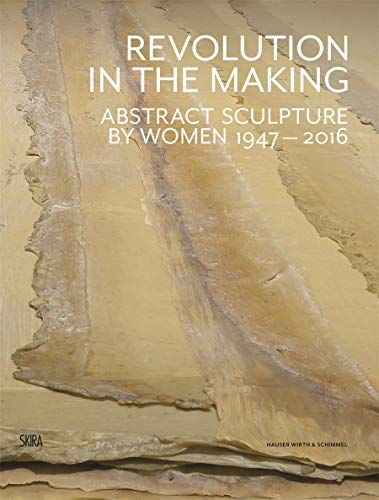
Revolution in the Making Abstract Sculpture by Women, 1947-2016
Half theWorld traces the ways in which women artists deftly transformed the language of sculpture to invent radically new forms and processes that privileged studio practice, tactility and the artist's hand. The volume seeks to identify the multiple strains of proto-feminist practices, characterized by abstraction and repetition, which rejected the singularity of the masterwork and rearranged sculptural form to be contingent upon the way the body moved around it in space. The catalogue begins in the immediate post-war era, with the first section spanning the late 1950s through the 1950s. Featuring historically important predecessors including Ruth Asawa, Lee Bontecou, Louise Bourgeois, Claire Falkenstein and Louise Nevelson, this section examines abstraction based on the human figure and the influence of the unconscious. The second section covers the decades of the 1960s and 1970s, and includes Magdalena Abakanowicz, Lynda Benglis, Heidi Bucher, Gego, François Grossen, Eva Hesse, Sheila Hicks, Marisa Merz, Mira Schendel, Michelle Stuart, Hannah Wilke, and Jackie Winsor, a generation of post-minimalist artists who ignited a revolution in their use of process-oriented materials and methods. In the 1980s and 1990s, the period explored in the third section, artists Phyllida Barlow, Isa Genzken, Cristina Iglesias, Liz Larner, Anna Maria Maiolino, Senga Nengudi, and Ursula von Rydingsvard moved beyond singular, three-dimensional objects toward architectonic works characterized by repetition, structure, and design. The final section is comprised of post-2000 works by artists Karla Black, Abigail DeVille, Sonia Gomes, Rachel Khedoori, Lara Schnitger, Shinique Smith, and Jessica Stockholder, artists who create installation-based environments, embracing domestic materials and craft as an embedded discourse.